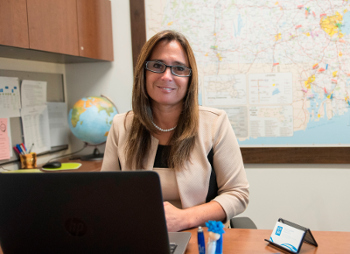Do you have a question about JRI services?

You’ve met the Eligibility Requirements and submitted your application.
You scheduled and completed your Housing Standards Assessment.
Now it is time for the Caregiver Assessment. What does that mean? Let’s learn together!
Caregiver Assessment
The Caregiver Assessment was once called the License Study. It is a comprehensive assessment of your suitability to provide foster care. There are many steps involved and it takes a while. Below, explore the steps involved in the Caregiver Assessment
- Provide Documents- This is the most boring part. There are documents we collect. This includes things like birth certificates, driver’s licenses, auto registration, etc. for household members. At JRI, you can upload them to our application portal called Binti. This is also where you completed your application.
- Complete Forms- We ask you to fill out our forms, providing us with information that helps us get to know you. We will base our interviews off this information.
- Interviews- We will conduct a minimum of three interviews with you and your household members. Interviews will focus on the caregivers, but will include all household members, as well as potential babysitters. This helps us understand who you are, how your home functions, whether your expectations of children in care and the foster care system as a whole are realistic, and the demographics of children you will best parent.
- MAPP- MAPP (the Massachusetts Approach to Partnerships in Parenting) is the 30-hour course designed to help introduce key concepts of foster care to potential foster parents and encourage deep, thoughtful consideration about whether fostering is a fit. It is required of all potential foster and adoptive parents in Massachusetts.
- References- We obtain 3 Personal References, Medical References, Mental Health References (if applicable), School References (if your home involves daycare or school aged children), and Employer References/Proof of Income. We reserve the right to ask for additional references if needed.
- Fingerprinting- All household members age 15 and over will be sent for fingerprinting.
- CPR and First Aid- All foster parents and frequent babysitters must be certified and up to date with CPR and First Aid certification. Don’t worry- we will help you obtain this!
- Car Seat Safety- This is a short video training we have all foster parents and frequent babysitters complete.
- Final Walk-Through- We will conduct one final Housing Standards Assessment to be sure the home meets requirements and is ready for approval. At this point, the child's bedroom should be set up, child-proofing should be installed, and all requirements must be fully met.
- Panel Review- Your Homefinder will assemble all of this information into a document called the Caregiver Assessment and present it to a panel. The panel is comprised of JRI and DCF staff, who review the information and decide if the Caregiver Assessment adequately answers all questions and demonstrates suitability to be a foster care resource. It is possible they will have additional questions or request additional information. They can deny a home, pause the process, or approve the home.
- Panel Decision- Once a determination is made, the applicant will be informed of the decision. If the decision is to deny a home, the home can appeal this decision.
- Final Paperwork- If the home is approved, JRI will inform them. We will schedule a time to review the Foster Parent Handbook, sign some final paperwork, and begin to work with you to match you with a waiting child.
What is the Purpose of the Assessment?
The Caregiver Assessment is intended to help foster care staff determine if foster parenting is suitable for the applicant. We want children to be served by healthy, stable, encouraging, prepared foster homes. We use our observations, information gathered through references and provided documentation, and metrics of success to determine if a foster parent is likely to be a capable, suitable foster care resource.
Additionally, we want foster parents to consider the information presented in MAPP and through conversations with their Homefinder to determine if foster care is a match. Some folks feel very rooted and bolstered by MAPP class, while others realize that their vision of foster care is quite different from the reality. If things are very different, they have to decide if they are willing to adapt to the realities of foster care.
Foster care is a mutual assessment of suitability between the applying foster parent and the supporting agency.
How Long Does This All Take?
The length of time from application submission to approval averages 6 months. Some folks do it in as little as 3.5 months, while others may take over a year. There are some reasons for the slow nature of the process:
- Some things, like medical references, can take time to obtain (especially if you’ve not seen a doctor in a while and need to establish care). We always encourage getting right to work on references once you’ve had your Housing Standards Assessment.
- Folks often do not like paperwork and put it off. Unfortunately, the process cannot move forward until it is completed.
- Waiting for MAPP can take a while. MAPP is 10 weeks long, so that’s two and a half months of time right there. If there is not a course offered soon after you submit your application, it may take some time. We recommend making time for MAPP as soon as it is available. JRI typically holds two or three MAPP courses per year.
- Life sometimes happens and folks need to pause or slow the process. Things like family illness, job changes, or other circumstances can crop up during the process and require an applicant to take time to adapt to their new situation. That's okay! Timing is important and we want you to be as ready as possible as you step into fostering.
As we’ve said before, it is not a bad thing for the process to take time. We want potential foster parents to move toward foster care with information, consideration, and preparation.
If you have been considering foster care and feel ready to engage in this process, please reach out today. We would love to speak with you.



